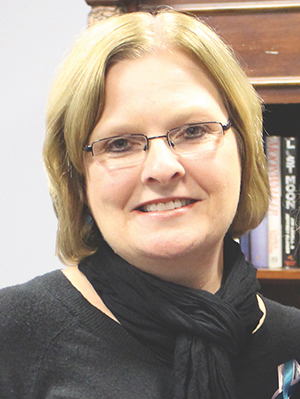AFTER MY FIRST breast cancer diagnosis in 1993, I became a go-to source of information for anyone who wanted to learn more about breast cancer or other cancer types. Family members, friends and occasionally strangers turned to me for advice on coping with treatment side effects, understanding cancer screening guidelines and other issues.
In the eyes of others, cancer survivors have great credibility as cancer educators, and the stakes are often high for those who seek our input or advice. The following tips can help you become a more effective resource for others who turn to you when they or those they love face cancer.
Gathering Knowledge

Cynthia Ryan Photo courtesy of Cynthia Ryan
Get information updates regularly. Cancer research and clinical practice evolve constantly. One way to keep up with advances is to schedule time periodically, at least once or twice a month, to learn about recent developments. Publications like Science and this magazine are excellent resources for gathering information, including news of recent discoveries. You also can gain a more nuanced understanding of cancer by attending classes offered at local health care facilities or by going to regional or national meetings devoted to helping cancer patients and survivors learn more about cancer research, treatments and patient advocacy.
Learn collaboratively. Cancer is too complex for one survivor to learn more than a fraction of what’s known. As a survivor, you can gain a lot by seeking the perspectives of others going through the cancer experience. Belonging to a cancer survivor support group can introduce you to others who share the disease but whose experiences may differ from yours, depending on the stage of their cancer at diagnosis, the pattern and rate of their cancer growth or the treatments they have undergone.
Sharing Knowledge
Recognize individuality. For cancer, there are few absolutes. Every survivor’s circumstances are unique. This insight has been confirmed by recent advances in precision medicine, where individual characteristics of a person’s cancer can lead to treatments targeted to that particular cancer. As cancer educators, we need to be clear about the uniqueness of each person’s cancer when speaking to those who seek our advice.
Qualify claims. How you frame statements about cancer can affect how they are received. Survivors who are cancer educators should use appropriate qualifiers—words and phrases suggesting their degree of certainty or uncertainty—when responding to questions.
For example, when someone asks me whether malignant lumps in the breast are painful, I avoid giving a simple yes or no answer. Instead, I’ll say something like “Many times, a cancerous tumor in the breast isn’t painful, but it can be. I suggest you get it checked out to be sure.” My word choices—many, can and suggest—imply that I can’t give a clear-cut response and that the person should consult someone who knows more about the situation than I do.
Encourage consultation. Being a responsible cancer educator means admitting what I don’t know. I’m always happy to answer questions about cancer, but I encourage those seeking information to keep looking. Patients should consult doctors about the specifics of their cancer diagnosis, request second or third opinions regarding available treatment options and ask other cancer survivors how they take on their cancer. I tell those who seek my advice that I’m just one among many standing under a wide umbrella of cancer survivorship.
A cancer diagnosis can be an isolating experience. I’m convinced that’s why so many of us reach out to more seasoned survivors who have already tackled cancer’s rocky terrain. We count on them to guide us through our own journey until we find solid footing. At some point, it will be our turn to extend a helping hand to others. Making the effort to learn as much as we can about cancer and knowing how to share what we know with others will help us become more effective cancer educators.
Cancer Today magazine is free to cancer patients, survivors and caregivers who live in the U.S. Subscribe here to receive four issues per year.




